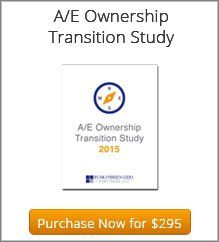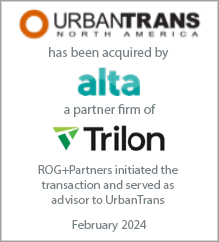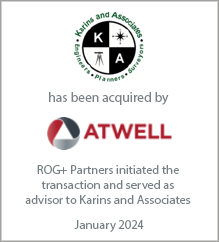Michael S. O'Brien is a principal in the Washington, DC office of Rusk O'Brien Gido + Partners. He specializes in corporate financial advisory services including business valuation, fairness and solvency opinions, mergers and acquisitions, internal ownership transition consulting, ESOPs, and strategic planning. Michael has consulted hundreds of architecture, engineering, environmental and construction companies across the U.S. and abroad.
How will the COVID-19 pandemic impact your Company's Valuation?
How will the COVID-19 pandemic impact your company's valuation?
December 2, 2020
It’s certainly been a long strange year. Most A/E firms began the year with healthy backlogs and high expectations for 2020. Then came the lockdowns, precipitous stock market declines, school closures, and the rapid shift to home offices and Zoom meetings. And yet, while the pandemic continues to impact us all in ways both small and profound, many firms benefited from financial relief provided by the CARES Act, and the overall economy has proven amazingly resilient. All these factors will present unique challenges for assessing year-end stock values for privately held A/E firms.
Nowhere is the aforementioned economic resilience more apparent than in the public stock market, with the Dow recently crossing 30,000. If you were to review the market valuation multiples as of December 31, 2019, and November 18, 2020, you would find that the multiples for the S&P 500 are 44% higher, and multiples for public companies operating in the A/E industry are up 16% on average. The increase in market multiples signals an expectation from investors that 2021 should be a strong year for most companies. Public market pricing is always forward-looking, and with 2020 representing such an unprecedented period, privately held companies will also need to look forward with respect to their valuations.
The COVID-19 pandemic presented many challenges for companies throughout the year, but your financial results for 2020 are likely not reflective of your firm's true earning capacity. Based on market metrics we are seeing, A/E firms' valuations will likely need to place a greater emphasis on financial prospects for 2021 since the circumstances for 2020 were extraordinary in nature. In other words, your appraiser should be focused on the actions you're taking now to deliver better financial performance and your projections for 2021.
Another valuation consideration is how to account for Paycheck Protection Program (PPP) loans. Most qualifying A/E firms applied for and received PPP loans, and many of these loans will still be outstanding at year-end, with forgiveness applications in process. And there's another wrinkle. While initially intended to be a tax-free source of funds, Notice 2020-32 from the Internal Revenue Service recently released on November 18, 2020, announced that the expenses paid for with the PPP loan funds are non-deductible in 2020. Whether your firm applied or received forgiveness, you cannot deduct these expenses in 2020 for income tax purposes.
How do you capture the tax liability and the loan forgiveness benefit from a valuation perspective? The amount of tax liability will be subject to the amount of loan forgiveness, so this may come down to how confident you are in receiving full forgiveness of your loan from the SBA. According to the Treasury Department, the government will audit any forgiveness application for a PPP loan of $2 million or more. This added scrutiny raises another variable for your appraiser to consider determining your firm's value – the timing and the amount of forgiveness. If your appraiser ignores these factors, you could end up with an overvalued or undervalued company.
ROG+ Partners can help you navigate your valuation challenges in 2020, reach out to us if you’d like to discuss.
Latest Perspective
Perfecting the A/E Exit Strategy – Five Key Factors
An enormous A/E generation that kicked off their careers in the 1980s and subsequently started firms or became owners in the 1990s ...
© 2024
Rusk O'Brien Gido + Partners, LLC
Financial Experts for Architects, Engineers, and Environmental Consulting Firms









